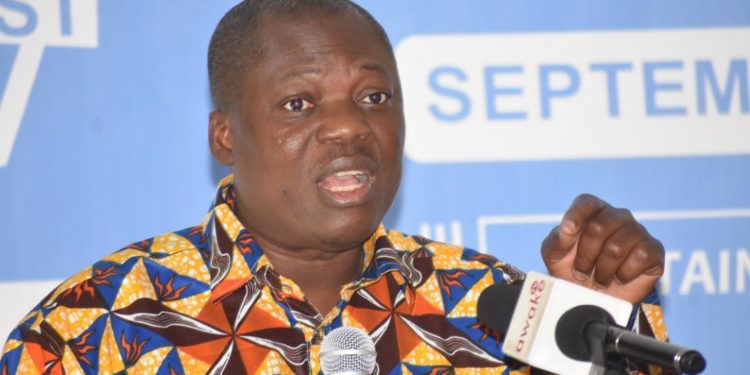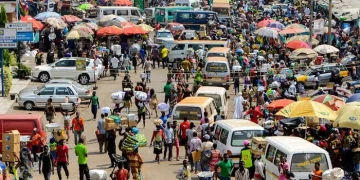Ghanaians have low confidence in government – Prof. Gatsi
The Dean of School of Business at the University of Cape Coast (UCC), has disclosed that Ghanaians have lost confidence in the Economic Management Team (EMT).
Professor John Gatsi noted that it is about time the government sat up to implement measures that will restore the confidence of the people.
Adding that this should be done by bringing all hands on deck to solve the dire economic situation in Ghana.
He stated this while commenting on the retreat by the government on deciding whether to go to the International Monetary Fund (IMF) for an economic bailout or stick to the e-levy for economic revival.
“As long as the government thinks they can do it alone, Ghanaians will continue to have low confidence in the government but that confidence will come when we are nationalistic and not polarized as we are today,” Prof Gtasi said.
“Everything they are doing now is partisan and all that you are doing does not resonate with the masses. It does not resonate with the people,” he added.
He noted that, “there is no confidence in leadership of the management of the economy and we need to do radical engagements to restore confidence in the people”.
“No matter the amount of money you pump into the system will not resonate with the economy. Restoration of credibility will bring stability because of the lack of credibility in the international economy”.
Prof. Gatsi said, “it is only proper to congregate and take a decision on the situation on either to go to the IMF or the e-levy”.
“Some key members of the [government] said the IMF is not an option and that the e-levy is the only opportunity they have, so if they are going to meet and decide on an IMF against e-levy, then perhaps the decision has already been taken to go to the IMF.”
“The Finance Minister and the President and many other key members of this government indicated publicly that the IMF is not an option, e-levy is their option so why now…going to decide on e-levy or IMF?”
“It means there has been some engagement with the IMF and they want to share with the members”.
Additionally, Ranking Member on Parliament’s Finance Committee, Casiel Ato Forson has urged government to sign up for support from the International Monetary Fund (IMF) immediately.
Read: GSE-CI slips 0.25 points to close at 2,738 points; returns -1.82% YTD
Speaking in an interview he said, “the government should take a decision that would preserve the bright prospects of this country.”
“Let me add my voice and say that the government has no choice. Where we find ourselves, there is the need for the government to take a critical decision. The decision may be difficult but in the end it will be in the interest of the country,” he said.
According to Dr. Forson, “where the country is heading towards, clearly, it looks like we are going to have an accident on the way.”
“The way the economy is being run, the levels of our debt, the rate at which inflation is going up, the rate at which our cedi is depreciating and we are losing so much reserves in a very short period of time. Clearly, everything points to an accident that is about to hit us as a country and I am urging the government to stop that accident by signing on to the IMF.”
But the government is against the suggestion. According to the Finance Minister, Ken Ofori-Atta, a bailout from the IMF is not in government’s plans.
However, government will resort to “homegrown” alternatives to boost the economy.
“I can say; we are not going to the IMF. Whatever we do, we are not… So let’s think of who we are as strong proud people, the shining star of Africa, and we have the capacity to do whatever we want to do if we speak one language and ensure that we share the burden in the issues ahead,” he said.
In response to the homegrown alternatives, Dr. Forson stated that the government would have to show evidence that the homegrown product would work.
He, however, stated that evidence provided from 2020/2021 suggests that government does not have the political will to implement a homegrown policy that would indeed reverse the country’s fiscal imbalances.








